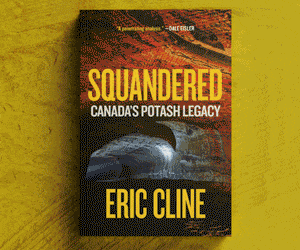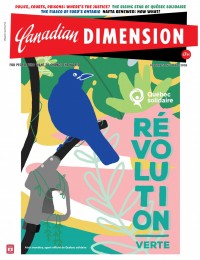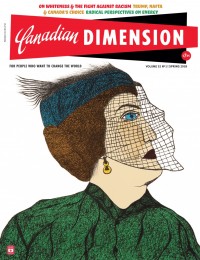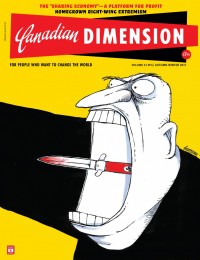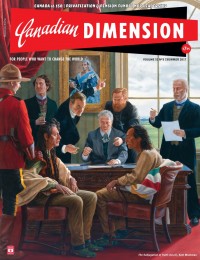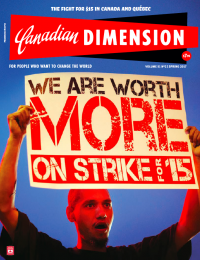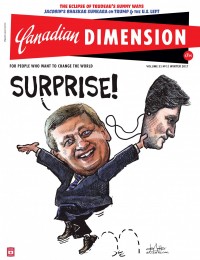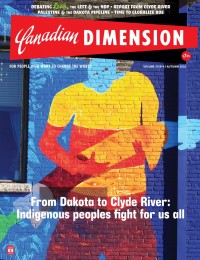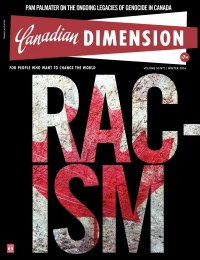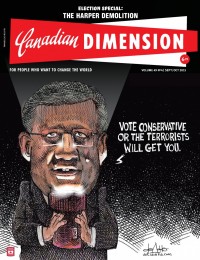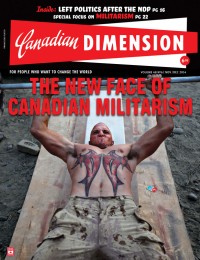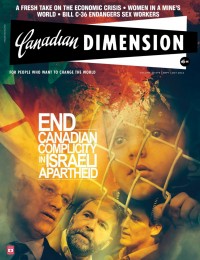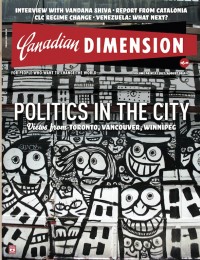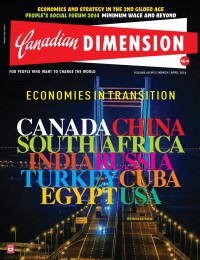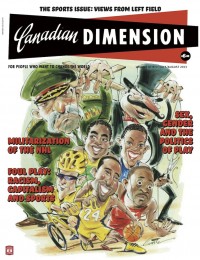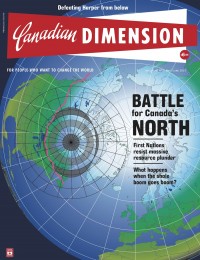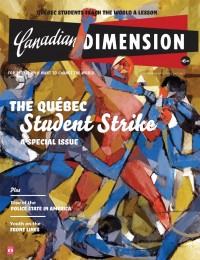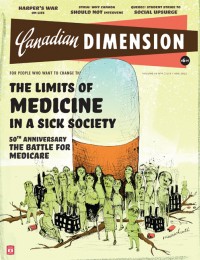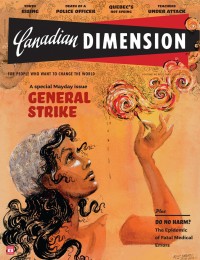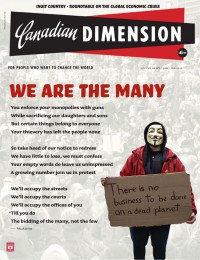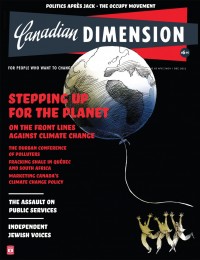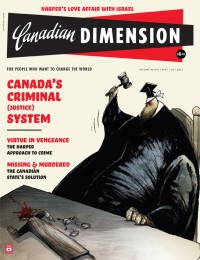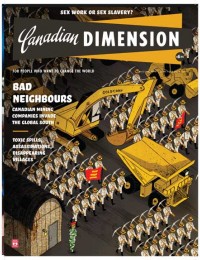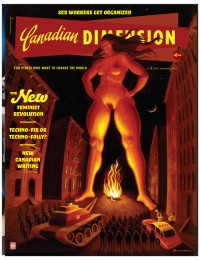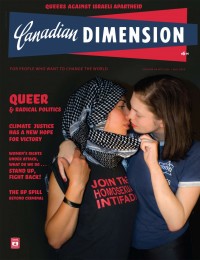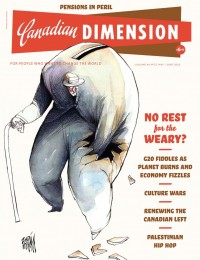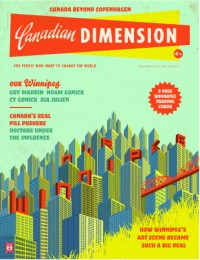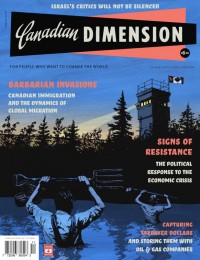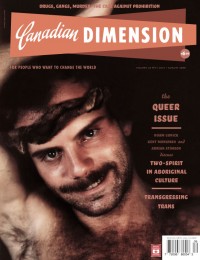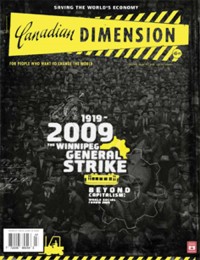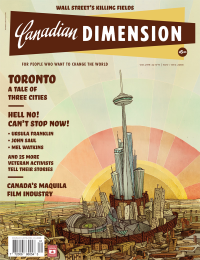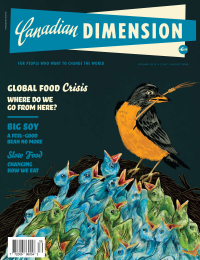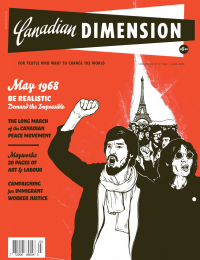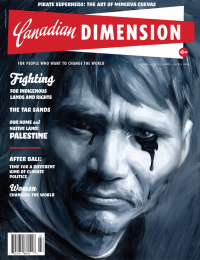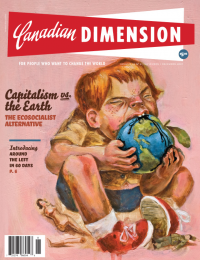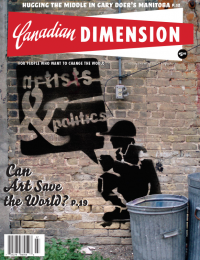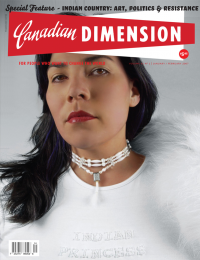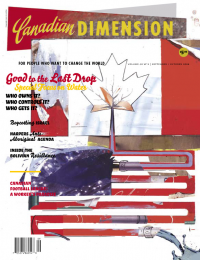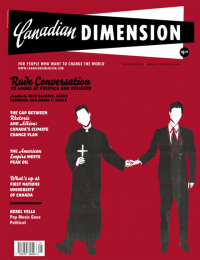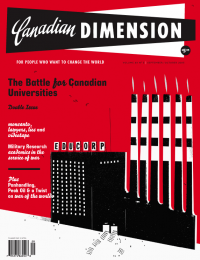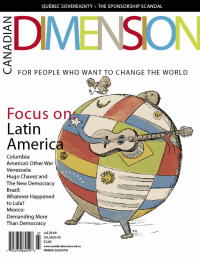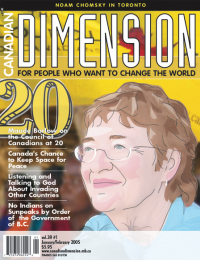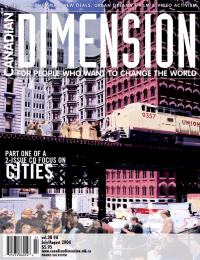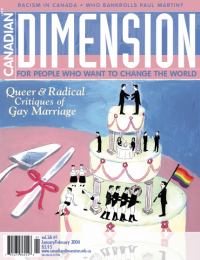Canadian press lies on Middle East
Recent developments in the Middle East have brought with them a corresponding level of propaganda in national Canadian press. The National Post and the Globe & Mail differ ideologically by image, not content, as far as I’m concerned, and recent articles on Afghanistan-Pakistan, Israel-Palestine and the UN racism conference have proven as much.
Commencing with the National Post, war drums are rattling against a country on the brink. “Pakistan’s enormous internal problems – corruption on an epic scale, massive income inequality, an incompetent and obsolete military establishment still obsessed with the Indian threat, an intelligence service riven with Islamist sympathizers — are beyond our ability to change through our standard tools of democracy-building and foreign aid,” writes National Post columnist Jonathan Kay. “But perhaps we can do something about the piece of the puzzle that affects the rest of the world most directly: Pakistan’s few dozen nukes. If the nation does indeed crumble into the hands of Medieval theocrats, we must be prepared to do what is militarily necessary to ensure those weapons are destroyed or disabled.”
Notice the logic. The country’s internal problems “are beyond our ability to change through our standard tools of democracy-building and foreign aid. So we must do “what is militarily necessary to ensure those weapons are destroyed or disabled.” That violating international boarders is a crime seems irrelevant to Kay, and he leaves the door wide open for any and all military options – including, we can only presume, torture, nuclear threats, mass bombing, or otherwise.
The picture he paints is one of utter hopelessness in which Pakistan is plummeting into the hands of “Medieval theocrats” – we can do nothing but watch. But we have been very busy indeed, namely, fueling the “Medieval theocrats” by repeatedly violating Pakistan’s sovereignty against the government’s will to bomb civilians.
After 27 people were killed in a car bomb in the Hangu town area, Taliban commander Hakeemullah Mehsud said, “we are meeting our pledge. … We will intensify our attacks if the drone strikes in the tribal areas do not stop.” So, we are doing what is “militarily necessary” to prevent the “Medieval theocrats” from obtaining nuclear weapons by fueling these same theocrats. Should our military efforts rip the country apart and place what’s left in the hands of these theocrats, we must do what is militarily necessary to prevent them from using nuclear weapons.
Kay’s entire column, then, is an exercise in fantasy. Too call it anything less than military fetishism would be misleading. This is not preemptive war – it’s preempting preemptive war with unfounded hypotheses.
Norman Spector’s Globe & Mail lies
We see the same distortions and insanity in the Globe & Mail, led by former Mulroney Chief of Staff and Canadian ambassador to Israel, Norman Spector. Prime Minister Harper “showed leadership” in being the first leader to announce that his country will not be attending the UN conference against racism, shortly followed by Israel, a handful of European countries, and finally the U.S. Never mind that 103 states out of the 192 member states of the UN participated; never mind that UN Secretary General Ban Ki-moon was “profoundly disappointed” that nine countries did not attend the event. What matters is that Harper “showed leadership” for being the first to stand down from the event.
Of course, Ahmadinejad’s diatribe against Israel defied the spirit of the conference – his description of the Holocaust as “ambiguous and dubious” was removed from his opening speech prior to the event, the conference itself held during a day of memorial for the lives lost during the Holocaust. He did, however, describe Israelis as “those racist perpetrators of genocide.” Despite Ahmadinejad’s predicted outburst, the conference delegates went on to adopt a declaration by consensus that “met most of the concerns expressed by the US,” according to a brief in the Financial Times.
The declaration “condemns, in a generic fashion, foreign occupation as one of the causes that promote racism, commemorates victims of slavery and colonialism, and recalls the obligations of the governments to cooperate with tribunals that investigate genocide.”
Given that the concept of “defamation of religions” that some Muslim countries advanced was removed, what precisely prompted Harper to be the first to withdraw from the conference? Perhaps it was the clause calling for indigenous rights to be recognized, as Canada has previously rejected similar UN declarations. Perhaps it was that the declaration reaffirms the conclusions of Durban 1 in 2001, “which encourage a negotiated political solution for the Middle East conflict, with mutual recognition of two states, Israel and Palestine.” Regardless of the logic, Ban Ki-moon expressed his profound disappointment that nine countries did not attend the event. Israeli Prime Minister Benjamin Netanyahu sent a thank-you letter on Tuesday to the nine countries. And Harper “showed leadership” in being the first.
Spector goes on to write that “better than most, [Harper] understands that at the root of the Mideast conflict is the unwillingness of many Arabs to accept the Jewish people exercising sovereignty in any part of the region.” This despite the fact that the U.S. and Israel, with Canada an increasingly eager partner, are leaders in rejectionist policy, and despite the reality that “Hamas has called for a two-state settlement in terms of the international consensus: publicly, repeatedly, explicitly.”
Globe & Mail on the West Bank
The lies and distortions of the national Canadian press are not confined to the op-ed section, however. To cite just one recent example, Globe reporter Patrick Martin writes a typical piece in which international oppression is cloaked in humanitarianism. “Restoring tranquility to a wild West Bank town” paints Canadian military officers as noble practitioners that have helped create “a model” for other Palestinian towns, in the words of Tony Blair.
The Globe piece traces this restoration of tranquility back to the 2002 “road map to Middle East peace,” but the training of Palestinian Authority police goes back at least to the 1998 Wye Memorandum. “The most significant and innovative aspect of the Memorandum is its barely concealed call for state terror to achieve the goals of the U.S.-Israel program. That breaks new ground for international agreements,” writes Noam Chomsky in his extensive study of the region, Fateful Triangle. “The Memorandum emphasizes that the Palestinian security forces, which have a shocking record of torture and terror, must act to ensure the security of Israelis. The CIA [and Canadian forces] will supervise them as they carry out arrests, hold mock trials, collect arms and ‘criminalize’ incitement against the agreements.” Immediately after approval of the Memorandum on October 23, 1998, over 12 new settlements were established throughout the West Bank, heeding Israeli Foreign Minister Ariel Sharon’s call to “grab” as much land as possible.
Chomsky details the outcomes of the Wye Memorandum extensively, including the establishment of “security roads” for Jews throughout the territories and preservation of Israel’s “national interests”: “security areas, the areas around Jerusalem, the areas of Jewish settlement, infrastructure interest, water sources, military and security locations, the areas around north-south and west-east transportation arteries, and historic sites of the Jewish people.” All of this, of course, is not mentioned in the Globe article. Instead, it’s the “Palestinian police and security forces [who] work with U.S.-led mission to end the culture of violence.”
Such are the distortions of the Canadian press. That which is false is presented as fact, and that which is fact is diluted or obfuscated altogether. The dangers posed by such disregard for reality are a real concern for the future of an increasingly volatile region.


